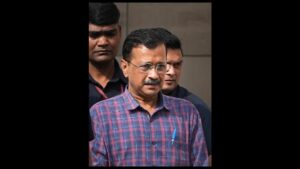Table of Contents
Introduction
Delhi Chief Minister Kejriwal had become the first serving CM in the country to be arrested. He has been sent to Tihar jail for judicial custody in the Delhi excise policy scam, aka liquor policy case.
In India, alcohol affairs vary from state to state since it is a state subject, and it is also banned in a few states like Bihar and Gujarat. But why? The Delhi Liquor Policy has been in the news headlines recently.
Delhi Chief Minister Arvind Kejriwal has been summoned by the CBI in connection with the national capital’s now-scrapped liquor sales policy, nearly two months after his former deputy Manish Sisodia was arrested in the case.

What are the Accusations against Delhi’s CM Kejriwal?
Two cases have been registered about the excise policy — one by CBI, and the other, on alleged money laundering, by the ED.
The ED said in court that the Aam Aadmi Party (AAP) chief and CM of Delhi was the “kingpin and key conspirator of the Delhi excise scam”
They said Kejriwal was part of a plan to help certain people & get money from liquor businessmen in return for favors. ED alleged that he was part of using money from illegal activities in the AAP’s campaign during the Goa election in 2022.
What is the Delhi Liquor Policy case?
The Delhi government introduced a new plan to update how alcohol is sold in the city and changed the excise taxes and duties levied on liquor in November 2021
The case arose from a report submitted by Delhi Chief Secretary Naresh Kumar to Lieutenant Governor (LG) Vinai Kumar Saxena in July 2022, pointing to alleged procedural lapses in formulating the Delhi Excise Policy 2021-22. The policy came into force in November 2021 but was scrapped in July 2022.
The report said that the decision taken regarding policy by the Excise Minister caused a loss of over ₹580 crore to the government.
It was alleged that kickbacks received by the AAP Delhi government and AAP leaders” from owners and operators of alcohol businesses for preferential treatment such as discounts and extensions in license fees, waiver on penalties and relief due to disruptions caused by the Covid-19 pandemic, etc., were used to “influence” the Assembly elections in Punjab and Goa in early 2022.
This report was referred to the CBI and led to Sisodia’s arrest on February 26, 2023.
The ED alleged that the scam was to give the wholesale liquor business to private entities and fix a 12% margin, for a 6% kickback. In its first prosecution complaint in November 2021, the ED said the policy was “formulated with deliberate loopholes” that “promoted cartel formations through the back door” to benefit AAP leaders.
Alleged connection of Kejriwal with the ‘South Group’
According to the ED, Kejriwal was “directly involved in the formulation” of the excise policy, which was drafted “considering the favours to be granted to the South Group”.
The South Group is a group of individuals from South India. They got special access and benefits, even more than what the rules allowed. South Group gave ₹ 100 crore to AAP leaders in exchange for selling liquors from southern liquor companies to Delhi retailers.
One of the alleged “South Group” members is K Kavitha, leader of the Bharat Rashtra Samithi (BRS), and daughter of former Telangana Chief Minister K Chandrashekar Rao. Kavitha was arrested on March 15. It was after Kavitha’s arrest that the ED alleged, for the first time on March 18, that Kejriwal was a conspirator in the case.
What did Kejriwal argue in court?
Senior Advocate Abhishek Manu Singhvi said CM Arvind Kejriwal had been arrested over facts that were “static and frozen for months”, and that the arrest was “based on three or four names”
Step 1: Many witnesses will give statements — Kejriwal won’t be mentioned.
Step 2: Arrest the witnesses and deny them bail.
Step 3: Make a deal making them the approvers
The next day a statement will come which will be against Kejriwal. The next step is to record the statement of the co-accused. An approver is the most unworthy friend…his statements have zero credibility,” Singhvi said.
Singhvi argued that “more than 80%” of those connected with the case have not mentioned Kejriwal or any dealings with him. “The case has been stitched together by the words of some co-accused and the (Delhi) L-G and approvers. There is no evidence of any wrongdoing. No incriminating material has been found against me even after over one year has elapsed,
Can a sitting CM be arrested?
The President of India and Governors of states and Union Territories are the only constitutional officials protected from civil and criminal proceedings until their term ends.
According to Article 361 of the Constitution, the President of India and Governors of states cannot be questioned in any court of law for “any act done in discharge of their official duties.”
So, protection under Article 361 is not granted to the Prime Minister of India or any Chief Minister of State and is treated as a common citizen of India.
